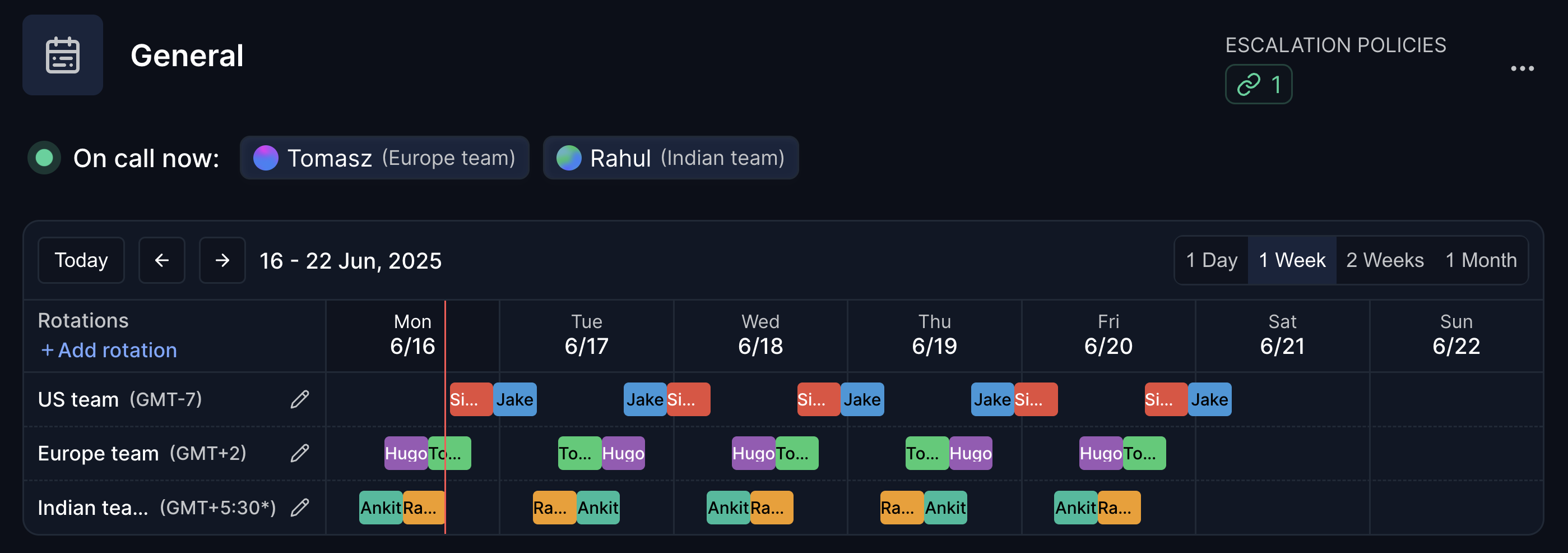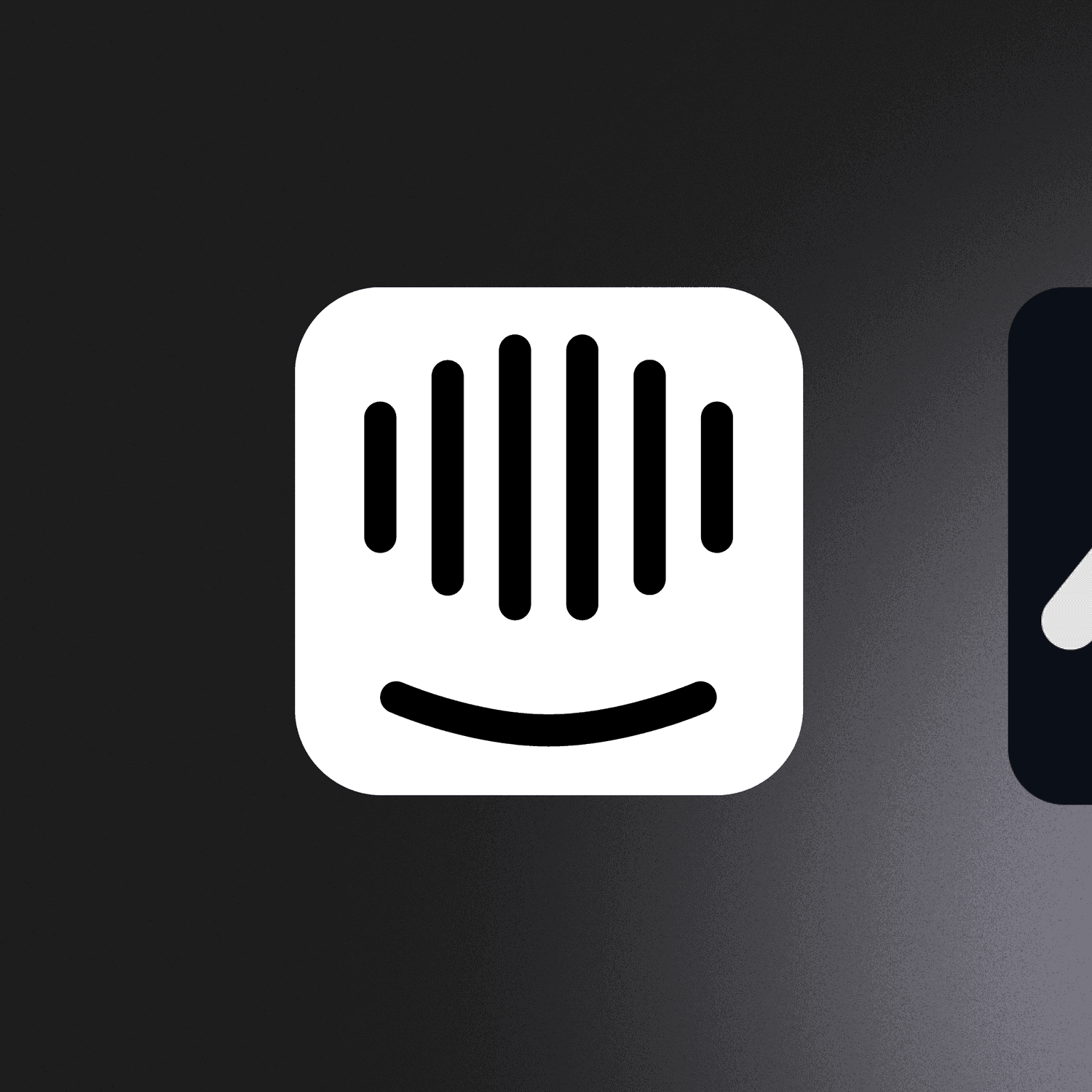Atlassian just pulled the plug on Opsgenie.
On December 3, 2024, they announced that Opsgenie will reach end-of-life by April 2027. New sales stopped on June 4, 2025, and if you're using the JSM-bundled version, you'll lose access even sooner—October 2025.
Here's the kicker: Atlassian wants you to migrate to their fragmented JSM + Compass combo, which splits your incident management across multiple tools.
The reality? Teams are frustrated. After years of relying on Opsgenie's unified approach, being forced into a fragmented solution feels like a step backward.
If you're one of the thousands of teams scrambling for alternatives, this guide breaks down everything you need to know about the shutdown and the best replacements available.
Why is Atlassian shutting down Opsgenie?
Atlassian's official reason is "product consolidation." They want to unify incident management capabilities into Jira Service Management (JSM) and service cataloging into Compass.
But here's what's really happening:
- Product complexity — Maintaining separate incident management products was getting complex
- Market positioning — Atlassian wants to position JSM as their comprehensive ITSM solution
- Strategic focus — Consolidating development resources into fewer products
The problem? This consolidation creates a worse experience for teams that loved Opsgenie's simplicity and unified approach.
What does this mean for current Opsgenie users?
Timeline breakdown
| Date | What happens |
|---|---|
| June 4, 2025 | New Opsgenie sales stopped |
| October 2025 | JSM-bundled Opsgenie access ends |
| April 2027 | Complete Opsgenie shutdown |
Your migration options
Atlassian is pushing customers toward:
- Jira Service Management for incident response workflows
- Compass for service cataloging and dependency mapping
The catch? This combination lacks many features that made Opsgenie valuable:
- No integrated uptime monitoring
- More complex setup and maintenance
- Fragmented user experience across multiple tools
Why teams are looking elsewhere
Based on community discussions and user feedback, here are the main reasons teams are ditching Atlassian's suggested migration path:
1. Tool fragmentation
Opsgenie's strength was its unified approach. The JSM + Compass combo forces you to manage incident response across multiple interfaces, creating friction during critical situations.
2. Reliability concerns
Let's not forget Opsgenie's 14-day outage in 2022. Many teams are using this transition as an opportunity to move to more reliable platforms.
3. Feature gaps
The JSM + Compass combination doesn't include integrated monitoring capabilities that many teams rely on. You'll need additional tools to replace this functionality.
4. Future uncertainty
After being burned by this shutdown, many teams are wary of investing further in Atlassian's incident management ecosystem.
Complete guide to Opsgenie alternatives
We analyzed 20+ incident management platforms to find the best Opsgenie replacements. Here are our top picks:
Hyperping: Best unified alternative

Why it's our top pick: Hyperping combines monitoring, on-call management, and status pages into one platform—exactly what made Opsgenie valuable, but with better reliability.
Key features
- Integrated monitoring — HTTP, SSL, cron job, and port monitoring built-in
- On-call management — Escalation policies, scheduling, and smart alerting
- Status pages — Beautiful, fast-loading pages that update automatically
- Team collaboration — Slack, Teams, and email integrations
- Free tier available — Get started without any upfront costs
Best for: Small to medium teams wanting an all-in-one solution without tool sprawl.
PagerDuty: Best for enterprise teams
Strengths:
- Comprehensive automation capabilities
- Extensive third-party integrations
- Advanced analytics and reporting
- Strong enterprise features
Limitations:
- Complex setup and configuration
- No built-in monitoring (requires additional tools)
- Enterprise-focused pricing model
Incident.io: Best for Slack-native teams
Strengths:
- Deep Slack integration
- Excellent automation workflows
- Strong documentation features
- Modern user experience
Limitations:
- Requires Slack for full functionality
- No built-in monitoring
- Limited status page features
Zenduty: Good basic option
Strengths:
- Good core incident management features
- Decent integrations
- Straightforward setup
Limitations:
- Limited automation capabilities
- Basic status page functionality
- Smaller ecosystem
Migration strategy: Moving away from Opsgenie
1. Audit your current setup
Before switching platforms, document:
- Current escalation policies and schedules
- Integration points and dependencies
- Team workflows and processes
- Alert sources and routing rules
2. Choose your migration approach
Big bang migration: Switch everything at once
- Pros: Clean break, no dual maintenance
- Cons: Higher risk, more complex coordination
Gradual migration: Move services incrementally
- Pros: Lower risk, easier rollback
- Cons: Temporary complexity, longer timeline
3. Test thoroughly
Set up parallel monitoring for critical services during the transition. Most alternatives offer free trials to test compatibility with your existing tools.
4. Train your team
Ensure everyone understands the new platform before go-live. Document new processes and update runbooks accordingly.
Why unified platforms are winning
The Opsgenie shutdown highlights a broader trend: teams are moving away from fragmented tool stacks toward unified platforms that handle multiple aspects of incident management.
The benefits of unified platforms:
- Faster response times — No context switching between tools during incidents
- Simpler management — One platform instead of multiple tools
- Easier maintenance — Single platform to configure and maintain
- Better data correlation — Monitoring data directly informs incident response
This is why platforms like Hyperping are gaining traction. By combining monitoring, on-call management, and status pages, they eliminate the tool sprawl that Atlassian is actually creating with their JSM + Compass approach.
What to do next
The Opsgenie shutdown timeline gives you time to plan, but don't wait too long. Here's your action plan:
Immediate (next 30 days)
- Audit your current Opsgenie usage — Document features, integrations, and workflows
- Try alternatives — Sign up for free trials of promising platforms
- Evaluate features — Compare capabilities and integration requirements
Short-term (next 3 months)
- Run proof-of-concept migrations — Test critical workflows on new platforms
- Get team buy-in — Involve your team in the evaluation process
- Plan your migration timeline — Avoid the last-minute rush
Long-term (next 6-12 months)
- Execute migration — Move services according to your plan
- Optimize new setup — Fine-tune workflows and integrations
- Document new processes — Update runbooks and team documentation
The silver lining
While the Opsgenie shutdown is disruptive, it's also an opportunity to upgrade your incident management stack. Many alternatives offer better features and more reliable infrastructure than what Atlassian is proposing.
Teams that take this opportunity to evaluate modern platforms often end up with better incident response capabilities than they had before.
Ready to explore Opsgenie alternatives? Try Hyperping's unified platform with monitoring, on-call management, and status pages—all in one place. Get started with our free tier and see why teams are making the switch.
FAQ
When is Opsgenie shutting down? ▼
Atlassian announced Opsgenie will reach end-of-life by April 2027. New sales stopped on June 4, 2025, and customers using the JSM-bundled version lose access in October 2025.
Why is Atlassian shutting down Opsgenie? ▼
Atlassian is consolidating its incident management capabilities into Jira Service Management (JSM) and Compass. They want customers to use JSM for incident response and Compass for service cataloging instead of the standalone Opsgenie product.
What's the best alternative to Opsgenie? ▼
The best alternative depends on your needs. Hyperping offers a unified solution with monitoring, on-call management, and status pages. Other options include PagerDuty for enterprise teams, Incident.io for Slack-native workflows, or Zenduty for teams wanting basic functionality.
Will JSM + Compass replace all Opsgenie features? ▼
Not exactly. While JSM + Compass covers incident response and service cataloging, it lacks Opsgenie's integrated monitoring capabilities. Many teams find the fragmented approach less efficient than Opsgenie's unified platform.
Can I migrate my Opsgenie data to other platforms? ▼
Most modern incident management platforms offer migration assistance and data import tools. However, the migration complexity varies depending on your current Opsgenie configuration and the destination platform's capabilities.




